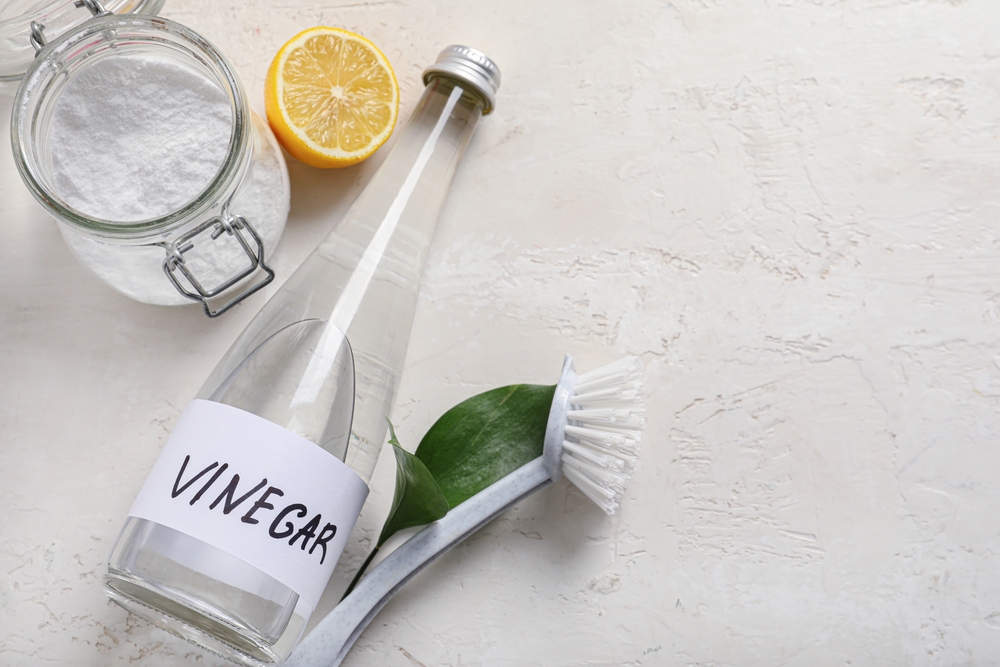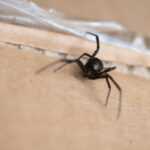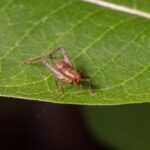Is Vinegar an Effective Solution for Ant Control?
Learn if vinegar kills ants and discover simple, effective tips to prevent them from coming back to your home.
Does Vinegar Kill Ants? The Solution of vinegar serves as a natural method to control ants but does not directly affect their survival.
Vinegar does not physically kill ants but interferes with their chemical signals used for navigation and finding food. This article explores how vinegar affects ants and its role in home remedies to get rid of ants quickly and naturally.
- Vinegar disrupts ant pheromone trails, confusing ants and hindering their ability to navigate and communicate.
- While vinegar acts as a strong ant deterrent and helps prevent ant infestations, it does not effectively kill ants or eliminate the entire colony and is best used alongside other pest control methods.
- For optimal results, create a white vinegar solution in a spray bottle and apply it daily in areas where ants are active, while sealing potential entry points to your house.
Understanding Ant Behavior
Ants have a complex communication and navigation system based on smell. They rely on pheromones—chemical signals—to create scent trails that guide other ants to find food sources or warn of danger. Each ant species uses specific pheromones for different messages and behaviors. The survival and efficiency of ant colonies depend heavily on this intricate communication.
Disrupting these pheromone trails causes confusion within ant colonies, making it difficult for ants to find their nests or food. Vinegar’s strong odor interferes with these trails, disrupting ant communication and navigation.
Ants have a highly sensitive sense of smell which they use to follow pheromone trails. By disrupting these trails, vinegar confuses ants and impairs their ability to forage and communicate. This makes vinegar a useful natural way to stop ants by interfering with ant trails and communication.
Can Vinegar Kill Ants?
White vinegar and apple cider vinegar are popular home remedies for ant control, but they do not kill ants effectively. Vinegar can kill ants only if they are submerged in it, but primarily it acts as an ant repellent.
The strong smell of vinegar repels ants, causing them to avoid treated areas. This makes vinegar useful for deterring ants inside your home. However, vinegar alone is insufficient for managing large ant infestations or eliminating entire ant colonies.
Despite its limitations, vinegar remains a valuable part of ant control when combined with other methods. It disrupts ant trails and repels ants, helping to prevent future infestations.
How Does Vinegar Affect Ants?
Vinegar’s main function is to break the pheromone trails ants use to communicate. These trails are essential for ants to share information and explore their environment. The strong vinegar odor masks these trails, making it difficult for ants to locate food sources.
This odor causes confusion among ants, preventing them from finding food or communicating effectively. Disoriented ants struggle to return to their nests or alert others about food.
While vinegar cleans surfaces and removes ant trails, it does not kill ants effectively. Drowning ants in vinegar kills them, but this is not practical for infestation control. Vinegar’s primary advantage is disrupting ant behavior and preventing colonization in your home.
Using Vinegar as an Ant Deterrent
White vinegar is an affordable, organic solution to prevent ant infestations. It acts as an ant repellent and a natural cleaner for ant travel routes. Preparing a basic white vinegar solution for home ant control is simple.
Adding essential oils enhances the effectiveness of vinegar solutions. Peppermint oil and tea tree oil have ant-repelling properties that complement vinegar. Combining vinegar with these oils creates a potent organic mixture for controlling ants.
Basic Vinegar Treatment
To prepare a basic white vinegar solution, mix equal parts white vinegar and water in a misting bottle. Use this solution to treat areas where ants are present and potential entry points in your home. Spray along baseboards and wherever ants are spotted. The strong vinegar aroma disrupts pheromone trails, deterring ants from returning. Regular application maintains its effectiveness.
For enhanced results, add a few drops of dish soap to the mixture. Dish soap helps break down the ants’ protective outer layer and improves the solution’s ability to stick to surfaces, increasing its effectiveness as an ant deterrent.
This vinegar remedy is safe and organic, free from harmful chemicals and pesticides, making it suitable for homes with children and pets.
Enhancing the Vinegar Solution with Essential Oils
Adding a few drops of essential oils strengthens the vinegar solution’s ant-repellent power. Peppermint oil is particularly effective at repelling ants and is a great addition to ant control methods. Tea tree oil also adds extra repellent power. The combination of vinegar and essential oils disrupts pheromone trails and provides an effective natural ant deterrent to keep ants away.
Other essential oils such as eucalyptus, lemon eucalyptus, and cinnamon leaf oil can also be incorporated to boost the repellent effect. These oils have strong scents that ants find unpleasant and can help cover vinegar’s odor for a more pleasant home environment.
Daily Application
For best results, apply the white vinegar solution daily at ant entry points and common ant locations in your house. Daily use ensures the deterrent effect remains strong and prevents ants from rebuilding their scent trails.
Spray at doorways, window sills, cracks, and gaps where ants might enter. Consistent application helps maintain control over ant infestations and prevents new colonies from forming.
Additional Natural Remedies to Complement Vinegar
To boost your ant control efforts, consider combining vinegar treatments with other natural remedies:
- Lemon Juice: Like vinegar, lemon juice disrupts ant scent trails and leaves a fresh smell. Spray lemon juice around entry points and problem areas to deter ants.
- Cinnamon: Sprinkle ground cinnamon or use cinnamon essential oil near ant trails. The strong scent acts as a natural ant repellent.
- Diatomaceous Earth: This natural powder damages ants’ exoskeletons, leading to dehydration and death. Apply it around your home’s perimeter for added protection.
- Peppermint and Other Essential Oils: Beyond peppermint and tea tree oils, eucalyptus and lemon eucalyptus oils are also effective ant deterrents.
- Boiling Water: Pouring boiling water into ant nests outdoors can kill many ants instantly, helping reduce local populations.
- Chalk or Baby Powder: Drawing lines of chalk or sprinkling baby powder can deter ants from crossing due to the texture and scent.
- Coffee Grounds: Used coffee grounds placed near entry points may repel ants temporarily.
- Seal Entry Points: Use caulk or weatherstripping to block cracks and gaps where ants enter.
- Maintain Cleanliness: Keep food sealed, clean up crumbs, and remove standing water sources to reduce attractants.
Preventing Future Infestations
Prevent future ant problems by sealing gaps around windows, doors, and foundations. Use door sweeps and eco-friendly caulk to block entry points. Regular housekeeping, such as vacuuming and storing food in sealed containers, denies ants access to food. Fix water leaks and maintain proper ventilation to reduce moisture that attracts ants.
Relying solely on vinegar will not eliminate entire ant colonies, so prevention and multiple control methods are necessary.
When to Call Professional Pest Control Companies
If ant nests or soil mounds are present around your property, or if carpenter ants are causing structural damage, professional pest control companies are necessary.
If DIY methods fail after several weeks, contact pest control experts at your local store or licensed professionals. They can eliminate ants and prevent future infestations effectively.
Fun Facts About Ants and Vinegar
Did you know ants are among the strongest creatures relative to their size? One ant can carry up to 20 times its own body weight! Despite their strength and complex social systems, a simple household item like vinegar can throw off their entire navigation system.
Also, ants are incredibly organized. They use scent trails to recruit other ants to food sources, making their teamwork impressive but also their weakness—disrupting these trails with vinegar can effectively confuse them.
Vinegar is a natural, effective way to repel ants by disrupting their pheromone trails. Enhancing vinegar with essential oils and applying it daily improves its effectiveness. For persistent or severe infestations, professional pest control is recommended.
Frequently Asked Questions
Does Dawn dish detergent kill ants?
Dawn dish detergent kills ants by breaking down their protective outer layer, causing dehydration and disrupting their scent communication. It is an easy and effective method for managing ants.
What do ants hate the most?
Ants dislike strong natural substances such as vinegar, cinnamon, and peppermint oil. Using these at entry points creates a barrier that deters ants effectively.
Can vinegar kill ants?
Vinegar primarily acts as a repellent and does not kill ants unless they are submerged in it. It is not a solution for eliminating entire ant infestations but helps prevent ants from entering.
How does vinegar disrupt ant behavior?
Vinegar confuses ants by masking their pheromone trails, disrupting their communication and navigation. This prevents them from locating food and following each other.
Which essential oils enhance vinegar’s ant control effectiveness?
Peppermint and tea tree essential oils added to vinegar increase its potency as an ant repellent, making it more effective at preventing infestations.
Can hot water be used to kill ants?
Pouring hot water into ant nests can kill many ants instantly, but it may not eliminate the entire colony. Use hot water alongside vinegar treatments for better ant control.
Are there other natural ways to repel ants?
Yes, natural remedies such as lemon juice, cinnamon, peppermint oil, and coffee grounds can deter ants. However, vinegar combined with essential oils remains one of the best solutions for home ant control.
Where can I buy ant control products?
You can find vinegar, essential oils, dish soap, and other ant control materials at your local store or online, making it easy to prepare effective home remedies. soap, and other ant control materials at your local store or online, making it easy to prepare effective home remedies.



